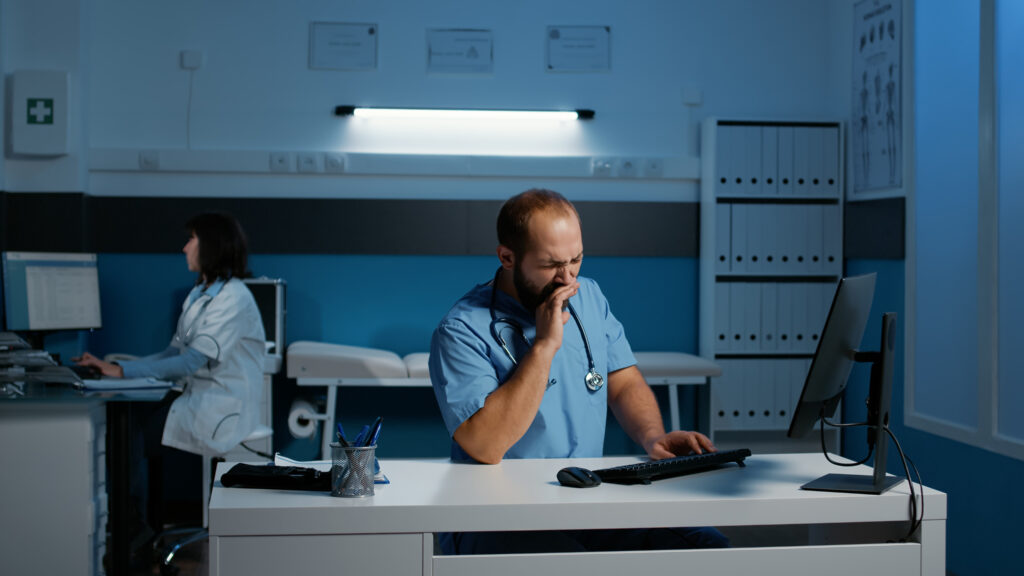Being a Physician Assistant (PA) is an incredibly rewarding career, but it’s essential to acknowledge and understand the negative aspects that come along with it. In this thought-provoking video, we shed light on the challenges of being a physician assistant that often go unnoticed. From long working hours and high-stress levels to the emotional toll of dealing with difficult patient situations, we discuss the realities that PAs face on a day-to-day basis.
We also delve into the challenges of work-life balance, limited autonomy compared to physicians, and navigating the healthcare bureaucracy. While it’s important to be aware of these negative aspects, we also provide insights on how to cope with them and find fulfillment in your PA career.
Table of Contents
Top 5 Challenges of Being a Physician Assistant
The PA profession can be very rewarding and fulfilling, but it’s also important to shed light on some of the challenges you might face as a PA. In this article, we will discuss the top five challenges that physician assistants may encounter during their careers. From limitations in practice to post-graduation learning curves and burnout, let’s explore these challenges in detail.
Limitations in Practice
One of the common questions asked about being a PA is whether there are limitations in practice. The answer is not straightforward, as it depends on various factors such as practice setting, scope of practice, and state laws. State laws regarding PAs can differ, with some states allowing independent practice after a certain period of experience, while others require supervision from a physician.
Moreover, the ability to prescribe certain medications can also vary from state to state. These limitations can be frustrating for some PAs, especially when it comes to the practice setting, specialty, and state they work in. However, it is crucial to join state PA organizations and advocate for legislation that modernizes the PA profession, ensuring the best possible care for patients at the top of the PA’s licensure.
Post-Graduation Learning Curve
After completing PA school and entering the workforce, PAs often face a significant learning curve. While PA education provides a robust clinical foundation, transitioning to real-world practice can still feel overwhelming. As a new graduate, you may feel unsure, second-guess yourself, and constantly seek validation.
The learning curve can be steep, especially when entering a new specialty. The knowledge and treatment plans may be unfamiliar, requiring extensive self-directed learning. Building competence in a new specialty takes time and relies on the support and guidance of colleagues, including nurses, pharmacists, and physicians. It is normal to feel overwhelmed initially, but with humility, questioning, and learning from the team, PAs can become more confident and proficient in their practice.
Burnout
Burnout can affect professionals in any healthcare field, including PAs. Contrary to the belief that PAs have better work-life balance, some PAs work long hours in demanding high-acuity settings. This can lead to burnout over time, particularly in areas such as the ICU or the ER.
Maintaining a healthy work-life balance requires conscious effort. Setting boundaries and prioritizing self-care are crucial. However, if the workload and lack of balance persist despite these measures, it might be necessary to consider alternative job opportunities or non-clinical roles that allow for a better work-life harmony.

Emotional Toll of Dealing with Death and Dying
Physician assistants play a vital role in patient care, acting as liaisons between patients, families, and physicians. However, one of the most challenging aspects of the profession is dealing with death and dying. Having difficult conversations or experiencing patient loss can take an emotional toll on PAs.
The fast-paced clinical environment, coupled with the recurrent experience of death and dying, requires emotional resilience. PAs must learn to manage their emotions effectively, maintain compassion and empathy, while still providing care to other patients. Handling these emotions without allowing them to bleed into personal life is essential for maintaining emotional well-being.
Impact on Patient Care
Lastly, being a PA means making a significant impact on patient care. PAs contribute to improving access to healthcare and act as integral members of the healthcare team. However, the responsibility of caring for patients, especially in critical situations, can be demanding.
While positively impacting patient lives is rewarding, it is crucial to acknowledge the emotional weight that comes with it. PAs must find ways to strike a balance between emotional connection and professional detachment to ensure the best care for their patients.
In conclusion, the PA profession offers numerous rewards, but it also presents challenges that can be overcome with proactive measures. From understanding limitations in practice and navigating the learning curve to managing burnout and handling emotional aspects, PAs can address these challenges with the right strategies. Despite the challenges, becoming a PA remains one of the most fulfilling professions for those passionate about healthcare.
Also read: Updates and Changes to the GRE Exam Explained
About me:
I’m Michele Neskey, aka The Posh PA. Welcome to my YouTube channel! My mission is to provide personalized guidance, education, and motivation to build confidence and promote wellness for aspiring physician assistants and beyond.
Having been a PA for 17+ years and helped hundreds of students gain acceptance into PA school, I understand the admissions process. I know what they are looking for, and I can help you tailor every component to make you shine, giving you the BEST chance of getting accepted to a program. But it doesn’t end there. I create personalized plans for PA students and practicing PAs including test-taking strategy for the PANCE, contract negotiations, and tools to overcome and prevent provider burnout.
My goal is to get you into a physician assistant (PA) school & survive the rigorous program, help you prevent burnout as a practicing PA, and help you take care of yourself so you can be the best version of YOU for your patients, family, and most importantly YOU!
